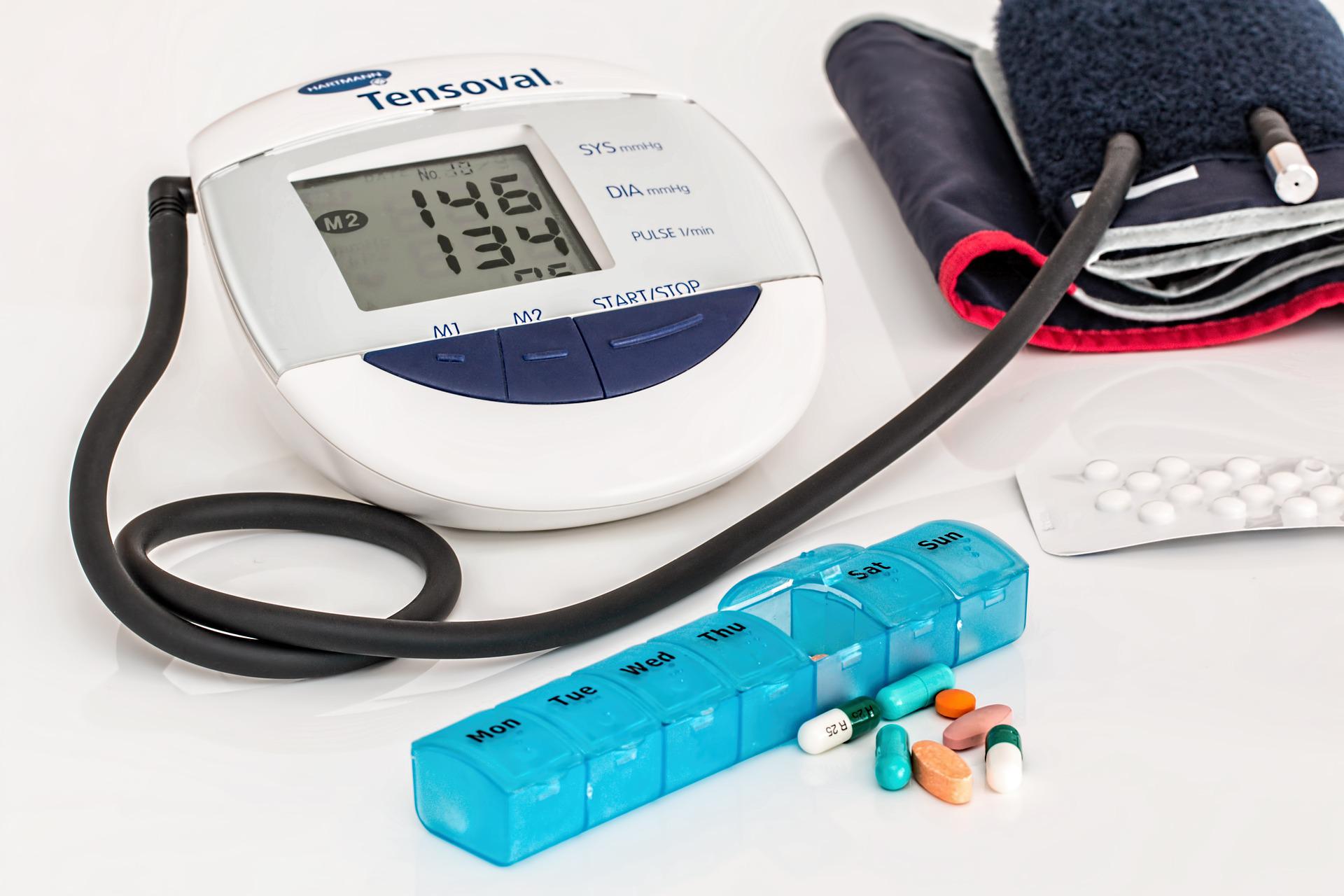It is the year 2022, and the process of medical logistics is undergoing significant development. The field of medical logistics is rapidly advancing thanks to the development of new technologies and approaches. This article provides an outlook on what to anticipate in the years to come!
What exactly is meant by “medical logistics”?
The procedure of organizing and transporting medical supplies is referred to as “medical logistics.” In order to provide care, medical professionals need access to a variety of medical supplies and equipment, including pharmaceuticals, medical devices, and surgical supplies.
The Most Important Obstacles Facing Medical Logistics
According to Zion Market Research, the current value of the global market for medical logistics services is $21.82 billion, and it is anticipated that this value will increase to $31.51 billion by the year 2026.
The process of transporting medical supplies is a difficult one that requires taking into consideration a great deal of information. When it comes to preventing loss of life, however, the precision and swiftness of the distribution process are of the utmost importance. When it comes to patient care, rapid delivery on the same day and in the healthcare industry, speed is of the utmost importance.
In addition, businesses are required to implement cutting-edge technologies, be knowledgeable of relevant regulations, and be familiar with the specific requirements of each shipment.
The following are four challenges that are faced by medical logistics, as well as ways that the logistics industry is finding solutions to these challenges:
 1. Safety of the Supply Chain
1. Safety of the Supply Chain
Technologies such as blockchain are helping to ensure the safety of shipments all over the world in today’s world. Imprinting a shipment with a one-of-a-kind code using blockchain technology enables it to be tracked and traced at every stage of the shipping process.
In addition, the level of security and tracking that blockchain technology offers is extremely important because it enables companies and regulatory agencies to ascertain the authenticity of a drug product as well as its identity and location.
2. Recent Discoveries in the Field of Medicine
These days, physicians will prescribe medicines to their patients based not only on the condition of the patient, but also on other specific factors, such as age, gender, and medical history. In the past, medical professionals would only base their medication recommendations on the condition of the patient.
In recent years, there has been a rise in the number of treatments that are tailored to the individual needs of patients and based on the genetic basis for the patients’ condition. As a direct consequence of this, patients are now receiving higher-quality medical care.
The fact that medications are becoming more individualized, on the other hand, poses a challenge for the logistics industry because drug manufacturing companies frequently need to ship their products directly to patients.
In addition, companies that provide logistics services need to maintain strong relationships with their clientele and provide versatile medical logistics solutions.
3. Climate Control
The requirement that medical products be kept in an environment with temperature and humidity regulation gives them a distinct advantage. Both solid and liquid medicines, as well as products of medical technology, can have their efficacy reduced when exposed to temperatures that are too high.
As a result, you need to make sure that the vehicle that your medical courier uses is outfitted with the necessary technology to maintain the appropriate temperature. If this is not the case, you ought to give some thought to searching for a new medical courier service provider.
In the past, shippers would only take the temperature of the products at the loading points, providing very little additional information. Customers frequently do not have access to temperature data during transportation. In the event that temperatures aren’t suitable and this fact isn’t discovered until delivery, patients won’t receive the necessary medication.
Shippers now have access to a multitude of technologies that allow them to track real-time temperature data. These technologies include smart packaging, wireless technology, and Bluetooth.
4. Customs and Administrative Paperwork
Because of the growing uncertainty in the global trade market, it is becoming increasingly difficult to ship medical supplies across international borders. As a direct consequence of this, it is becoming increasingly challenging to procure medical supplies from other countries.
These are just a few of the difficulties that exist in the field of medical delivery.
What does it mean to cover medical logistics?
The transportation and delivery of medical supplies can be handled by a medical courier service.
The following are examples of medical supplies that can be delivered by medical couriers:
- Instrumentation and apparatus used in healthcare
- specimens Medical history samples specimens medical records
There are a lot of companies that specialize in medical logistics, and some of them ship and deliver medical equipment like X-ray scanners and magnetic resonance imaging devices. Drugs, pills, blood, plasma, sperm, urine, feces, and red blood cells are some of the other items that are transported by these individuals. In addition, items necessary for medical treatment, such as blood and organs, can be sent through the mail.
Who is the Most Common User of Medical Logistics Services?
There is a wide variety of medical equipment logistics services available, and each kind caters to a specific clientele with particular needs.
Companies such as the following make use of medical supply logistics services:
- Hospitals \sClinics \sPharmacies
- Medical laboratories
- Businesses that provide medical supplies
- Facilities dedicated to medical care
- Donor hospitals and transfusion services
If you are looking for a medical courier service, Dropoff offers real-time tracking technology and API integration. These features help to ensure that pharmaceutical shipments are delivered on time and in a secure manner.
Companies Specializing in Medical Logistics
A medical logistics company is the go-to resource whether you require transportation for patients, medical equipment, or medications from Northwest haulage companies. They are also qualified to transport patients.
These businesses perform an important function by seeing to it that life-sustaining medical supplies arrive at their destination without incident.
SEKO Logistics specializes in all aspects of the logistics industry, including transportation, forwarding, warehousing, and supply chain management.
Dropoff is a company that specializes in the logistics of the healthcare industry and provides individualized solutions in addition to nationwide coverage in order to assist any medical company.
This company, C.H. Robinson, specializes in the management of transportation as well as warehousing.
The services of freight management and contract logistics are both provided by CEVA Logistics. CEVA Logistics.
Yusen Logistics is an organization that provides businesses with shipping solutions that are both productive and economical.
Are you interested in retaining courier services for medical logistics?
The following is a guide to the current rates charged by medical courier services.
 The Most Recent Tendencies in the Field of Medical Logistics
The Most Recent Tendencies in the Field of Medical Logistics
The following is a list of some of the most recent trends in the logistics of medical products:
1. the accessibility of integrated service options
Today, cold chain service providers offer integrated services for the global healthcare logistics market, including transportation and warehousing. These providers also offer disaster recovery services.
These services, in their most basic form, assist customers in monitoring the progress of their shipments and maintaining open lines of communication with all parties involved in the supply chain. The management of inventories, the storage of items, and the shipping of those inventories are all skills that can be learned from the training sessions offered by some vendors.
2. Innovative Approaches to the Distribution of Medical Products and Healthcare Services
When it comes to delivering medicines and drugs, some vendors in the global healthcare logistics market have switched from using air transportation to shipping via sea. The fact that it cuts costs by between 70 and 80 percent is among the most important advantages it offers.
There are many new online services that help patients receive their medications directly. Electronic health records, remote monitoring, electronic prescribing, and mobile health application are some of the services that are included in this category.
When it comes to the transport of medical supplies, companies that deliver medicines also make it a point to check that their drivers comply with HIPAA regulations.
3. Cost Management
Cost reduction efforts are being made by an increasing number of healthcare providers as a result of their shift away from the conventional fee-for-service business model and toward the value-based care business model. After that, the profit of the organization is safeguarded.
In addition to this, healthcare organizations need to be armed with analytics tools and ensure that their data is free of any blind spots. When healthcare logistics managers have a comprehensive view of their spending, they are better able to pinpoint inefficiencies and find opportunities for improvement.
4. Adaptability
The pandemic that swept the world caused havoc in a great deal of supply chains. As a direct consequence of this, there were delays in the distribution of pharmaceuticals and personal protective equipment. In the field of medicine, delays are never acceptable and immediately put patients’ lives in jeopardy. For this reason, managers of supply chains receive training in how to quickly find solutions in the event that the worst case scenario occurs.
In today’s world, managers of healthcare supply chains make use of sophisticated data analytics and intelligence in order to anticipate where their weak spots are.
The Path Forward for Medical Supply Chains
The goal of medical logistics is to provide patients with the highest possible level of care while also ensuring that deliveries are made in a timely and secure manner.
The following are the two primary forces that will be determining factors in the future of medical logistics:
1. Personalized Medicine
The pandemic caused by COVID-19 has placed a significant amount of strain on the distribution network for medical supplies around the world. As a result of the increased demand, certain types of medical supplies have become difficult to obtain. The first step on the more long-term path to recovery is becoming more flexible in the face of a pandemic and adapting to its effects. It will involve providing individualized care and solutions for the thousands of symptoms that have been experienced by the millions of people who have been affected and are recovering.
Listed below are just a few of the reasons why personalized medicine is so crucial:
- Better disease prevention
- A disease that can be diagnosed with greater precision.
Personalized medicine is beginning to overcome the limitations of traditional medicine by catering treatment to the specific genetic make-up of each individual patient. It is expected that in the coming years, its significance will grow even further.
2. The use of digital technology is more important than it has ever been
It is essential for the industry of medical logistics to continue its march toward full digitization.
The use of digitization enables more thorough monitoring of medical supplies while they are in transit. In the event that there are unanticipated delays or fluctuations in temperature, medical couriers are able to make preparations for any necessary intervention. You will be able to place orders with greater precision, and they will arrive at their destination more quickly, thanks to the capabilities of blockchain technology.
Because of this, warehouses will probably have fewer items in stock, which will result in less waste. It will be possible for goods to arrive at their location in a more timely manner.
The introduction of personalized medicine to the mainstream market is a challenging endeavor that calls for a high level of expertise. Control must be exercised with utmost precision over the workflow and application of cutting-edge technology.
Bottom Line
The main point is… The field of medical logistics is always undergoing change, and staying abreast of the most recent developments is absolutely necessary. At Dropoff, we take great pride in being at the forefront of this constantly evolving industry, which enables us to continue providing our customers with service that is of the highest possible caliber.
But don’t just take our word for it; read our guide on how to choose a medical courier to make sure that the shipments for your medical business are being handled in the most efficient manner possible.
Talk to one of our seasoned professionals if you have any questions regarding the operation of medical logistics or the ways in which Dropoff can benefit your company.
 FAQs Regarding Medical Supply Chains
FAQs Regarding Medical Supply Chains
1. Can you explain the concept of medical logistics?
The procedure of organizing and transporting medical supplies is referred to as “medical logistics.” In order to provide care, medical professionals need access to a variety of medical supplies and equipment, including pharmaceuticals, medical devices, and surgical supplies.
2. Can you please explain the role of a medical logistics specialist?
Transportation of medical supplies and apparatus is the responsibility of medical logistics specialists. They work with a variety of different things, such as pharmaceuticals, vaccines, surgical instruments, and diagnostic equipment. They are responsible for ensuring that these items are maintained at the appropriate temperatures.
Shipments of medical supplies can also be planned with the assistance of medical logistics specialists. The planning of shipments entails determining which items should be packaged together and how they should be packaged, as well as deciding which items should be shipped together.
3. What are some of the different functions that are included in medical logistics?
The process of ensuring that medical supplies are available when and where they are needed is known as “medical logistics.” The goal is merely to be of assistance to those working in the healthcare industry in cutting costs.





